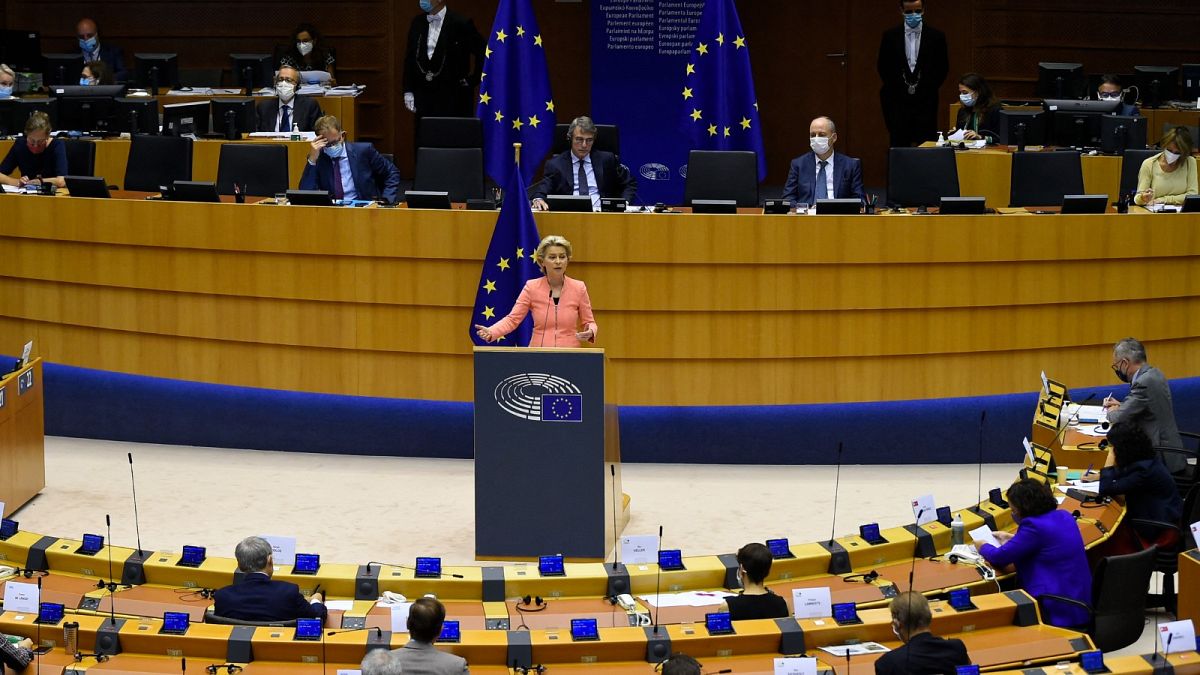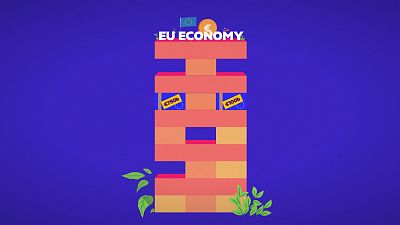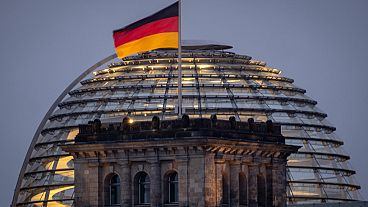There is no real motivation beyond faith alone for Europe to stick rigidly to its current fiscal rules, says MEP Philippe Lamberts
Angela Merkel is set to relinquish her hold on office in the next few weeks while retaining her position as one of the EU’s most popular leaders.
A recent poll carried out by the European Council on Foreign Relations showed that more than half of Europeans would elect Merkel to the hypothetical position of “EU President”.
There’s no doubt that Merkel’s personal standing has hugely enhanced Germany’s standing
Among EU citizens: 36 per cent of those polled by the ECFR said they trust Germany to lead on economics and finance; and 35 per cent will take Germany’s lead on democracy and human rights.
Is Germany's fiscal policy still Europe's biggest problem?
But the personal approval in which Merkel - and by reflection her country - basks, is strangely at odds with much of Europe’s experience of the fiscal policies the Eurozone has subjected its citizens to, over the past decade - measures of which Merkel was the greatest champion.
As the ECFR report puts it, “Merkel government’s support for austerity during the eurozone crisis and obsession with public debt and Germany’s huge trade surplus have drawn more criticism than any other policies.
German economic policy was widely regarded as the EU’s biggest problem, one that would ultimately lead to the EU’s disintegration.”
And yet people’s personal faith in Merkel as a figure of gravitas and good intent remained largely unshaken.
The question ahead of Europe now is whether to choose faith, or reason? Not in Merkel’s successor, or indeed in the role of Germany as the perceived leader of the coalition, but in the self same obsession with debt that nearly brought Portugal, Ireland, Greece and others to a standstill over a decade ago.
The 2008 financial crisis has changed the rules of the game
Because we should be very clear on one thing: there is no real motivation beyond faith alone for Europe to stick rigidly to its current fiscal rules.
Ever since the Maastricht Treaty, which created the modern European Union, the sacred creed of EU spending has been: budget deficits no higher than 3% of GDP and public debt no higher than 60% of GDP.
As economists, including Łukasz Czernicki, Chief Economist of the Polish Ministry of Finance, have pointed out in discussion of the fiscal rules:
“They were approximate indicators giving guidance as to optimal levels of debt and deficit for most advanced economies based on the prevailing understanding at the time they were created. They were a conceptualisation of economic thought onto a legal framework, not a universal law of nature.”
These conceptualisations, like many dogmas, may have made sense at the time they were laid out. But in the years since the 2008 crash we have witnessed the damage such tight controls can do to economies. And since the pandemic, we have seen spending skyrocket across most of Europe in response to the desperate need to keep economies afloat.
The post-pandemic world will have to abandon harmful austerity policies
To reassert the fiscal rules just as the continent begins to emerge from COVID-19 would involve imposing absurdly harmful levels of austerity, forcing governments to slash public spending at exactly the time it is necessary. This is not just irrational; it is deeply unenlightened - not a good look for the European Union, which places great emphasis on the legacies of Voltaire, Kant and other Enlightenment thinkers who created European culture as it is today.
The Green Party has always been clear on its position: the existing fiscal framework lacks both economic rationale and empirical validity.
Adherence to them is based on doctrine, not evidence.
It’s never the right time to blindly follow dogma, but right now is a particularly bad moment to insist on unrealistic debt ratios and spending limits. The next few decades will involve massive overhauls of our energy infrastructure if we are to have any hope of meeting essential “net zero” carbon emissions targets.
A debt-financed approach to growth in the medium term needs a real break from Merkelism
There is absolutely no way this can be done without heavy investment in clean energy sources and an environmentally friendly transport network.
As Germany goes to the polls this week, the frontrunner Olaf Scholz of the centre-left SPD has told The Guardian that “no one should build their political ideas on the possibility that the debt brake will substantially change”, while simultaneously acknowledging that “Our great challenge is that we remain a car nation that is successful at making electric vehicles instead, that our industry produces chemistry, steel or cement without damaging our climate protection targets, and that we achieve this in barely 25 years.”
It’s difficult to see how these two concepts can be reconciled.
Where German leads, Europe will follow. In a televised debate on Sunday, Scholz made explicit overtures toward Green Party leader Annalena Baerbock, suggesting that an SPD/Green coalition was the government most people want to see.
The Greens have been explicit in their programme for government: they believe that now is the time for infrastructure investment funded by debt.
Like most countries, Germany has suspended its commitment to fiscal rules during the pandemic.
But to officially adopt a debt-financed approach to growth in the medium term would mean a real break from Merkelism, and with it signal a new era for Europe as the Eurozone embarks on a debate around reforms to the Maastricht Treaty.
While Germany retains the faith of the EU in terms of economic guidance, signalling this fresh start could be the most important thing any new government could do - allowing member states to build for a sustainable future without clinging to old fiscal doctrines that are no longer fit for purpose.



